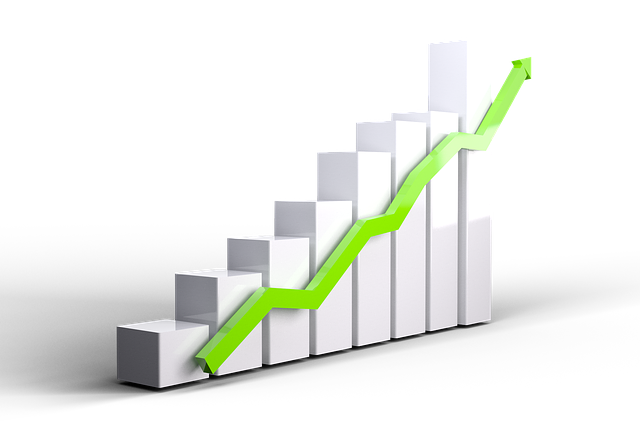Contractor financing is a key financial tool for both homeowners and contractors in the home improvement sector. For property owners, it offers a way to fund renovations or upgrades without overburdening personal finances, using the project itself as security to secure competitive rates and tailored payment plans. This allows access to high-caliber professionals who might be out of reach financially otherwise. Contractors, on the other hand, can leverage these financing options to address their own cash flow challenges, especially in an industry characterized by project-based work. They can choose from various financial instruments like hard money loans, SBA-backed loans, equipment financing, lines of credit, or short-term loans, each with its own advantages and terms. Homeowners should carefully assess their project costs and select a financing option that aligns with their renovation needs and timeline to ensure they can complete their improvements successfully while maintaining financial stability. Contractor financing thus serves as a vital link between homeowner aspirations and tangible home enhancements, facilitating smooth project execution and contributing to the sustained growth of the home improvement industry.
Navigating the realm of home improvements can be a transformative endeavor for property owners, and contractor financing emerges as a pivotal tool in realizing these enhancements. This article delves into the intricacies of securing financial support tailored for contractors specializing in home upgrades. We’ll explore diverse financing options that cater to the unique needs of contractors, ensuring they have the means to execute projects efficiently and effectively. From understanding the essentials of contractor financing to implementing strategies that fuel your home improvement ventures, this guide is designed to equip you with the knowledge necessary to make informed decisions about your financial choices in the construction sector.
- Understanding Contractor Financing for Home Improvements
- Exploring Different Financing Options for Contractors Engaged in Home Improvements
- Strategies for Securing Contractor Financing to Fuel Your Home Improvement Projects
Understanding Contractor Financing for Home Improvements

When considering home improvements, understanding the various financing options available through a contractor can be pivotal in transforming your vision into reality. Contractor financing tailored for home enhancements offers property owners a flexible and convenient way to fund projects without the immediate strain on personal finances. Unlike traditional loans, this financing is often structured with the project itself as collateral, which can lead to favorable terms including competitive interest rates and repayment schedules that align with the duration of the work. This arrangement not only simplifies budgeting for the improvements but also allows homeowners to work with reputable contractors who might otherwise be out of reach financially. It’s crucial to evaluate the terms and conditions, as well as any associated fees or interest rates, to ensure the financing is suitable for your financial situation and the scope of the renovation. By partnering with a contractor who offers financing solutions, homeowners can embark on their home improvement projects with confidence and peace of mind, knowing they have the necessary financial support in place.
Exploring Different Financing Options for Contractors Engaged in Home Improvements

Contractor financing is a critical aspect for professionals in the home improvement industry, as it enables them to secure funds necessary for projects ranging from minor renovations to extensive remodels. For contractors, accessing capital that aligns with the cash flow cycle of home improvements is essential. Traditional lending options may not always meet the dynamic needs of such projects, necessitating a exploration of alternative financing solutions. Options like equipment financing, line of credit, or short-term loans can provide the liquidity required to purchase materials, manage payroll, and cover other operational expenses. Moreover, understanding the nuances of each funding source is crucial; for instance, hard money loans offer quick access to funds with flexible terms but typically come with higher interest rates. On the other hand, SBA-backed loans provide longer repayment periods and lower interest rates but may require more time to process. Contractors must assess their specific needs and project timelines to determine the most suitable financing option for home improvements. In this context, staying informed about emerging financial products, such as invoice factoring or revenue-based financing, can also offer contractors alternative pathways to fund their projects effectively. These options not only support the contractor’s immediate financial needs but also contribute to the successful completion of home improvement projects, ultimately leading to customer satisfaction and a robust business growth trajectory.
Strategies for Securing Contractor Financing to Fuel Your Home Improvement Projects

Contractor financing solutions are pivotal for homeowners looking to undertake significant home improvement projects. These financial instruments bridge the gap between a homeowner’s vision and its realization, allowing for the procurement of professional services without immediate liquidity constraints. Securing such financing requires strategic planning and an understanding of the various options available. Homeowners should explore traditional bank loans, which often offer competitive rates and flexible repayment terms tailored to home improvement projects. Additionally, considering a home equity line of credit (HELOC) can be advantageous, as it allows for drawing funds as needed during the renovation process. Alternative financing routes like personal loans or contracts with the contractor that include a financing contingency can also be viable options. It’s crucial to assess the total cost of the project, including materials and labor, to ensure that the chosen financing method aligns with the budgeted expenses. By carefully evaluating these strategies for securing contractor financing, homeowners can confidently embark on their home improvement endeavors, transforming their living spaces into dream homes without compromising financial stability.
Homeowners and contractors alike can benefit from tailored financial solutions that facilitate home improvement projects. This article has demystified the realm of contractor financing, offering a comprehensive overview of available options. By exploring different financing methods, from traditional loans to specialized programs, contractors can secure the necessary funding to fuel their endeavors. Implementing strategic approaches to procure such financing not only enhances project execution but also ensures customer satisfaction and business growth. For those embarking on home improvements, understanding the nuances of contractor financing is a prudent step towards successful project completion and exemplary results.
